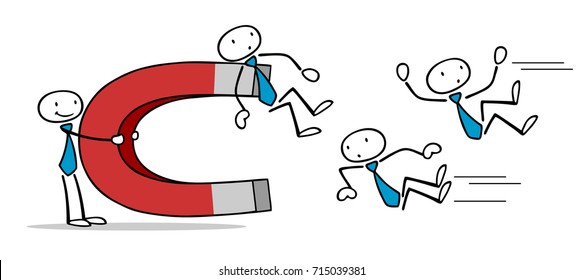 Goals are typically future-orientated, something to aspire and work towards. From the book, ‘Before You Know It: The Unconscious Reasons We Do What We Do,’ by John Bargh, I’m learning that we make micro-goals all the time.
Goals are typically future-orientated, something to aspire and work towards. From the book, ‘Before You Know It: The Unconscious Reasons We Do What We Do,’ by John Bargh, I’m learning that we make micro-goals all the time.
These micro-goals affect our present-time decision-making and impact future events without our conscious awareness. Hunger is an unconscious goal the body gives to receive fuel. At a networking event, I might have the conscious micro-goal to be memorable so I’ll do and say things that subtly (or not) make me stand out.
This real-time micro-goal orientation can be linked to ‘perceptual readiness’ with interesting results.
Perceptual readiness is a theory introduced by Harvard psychologist, Jerome Bruner. Perceptual readiness is when a person’s current motivational state and desire increases sensitivity to goal-relevant people and objects in one’s environment. Therefore, Bargh argues,
Perceptual readiness unconsciously tunes your attention to things that will help you satisfy your goals and needs.
It makes sense that as your life changes you attract like-minded people to you because your conscious and unconscious goals change. Your perceptual readiness allows for more of what you and your goals are aligned to.
I remember when I got pregnant seeing pregnant women everywhere. Those women and I have similar micro-goals.
I’ve often wondered why some friendships fizzle out. I generally put it down to no longer having things in common or a lack of effort made by one or both parties but could it be that I have unconsciously stopped putting energy in that direction because I knew they wouldn’t or couldn’t help me fulfil my goals?
What are the advantages or consequences then of being more intentional with perceptual readiness and micro-goals?
Let’s question for a moment why we have a particular person in our life. Let’s for example’s sake, look at my husband. He is the love of my life, my partner in our life-journey and father to our child. But, what purpose or reason do I have to have him, specifically him, in my life? Is it companionship? Fulfilment of love? Or is there a greater more self-serving reason? Does his presence in my life fill a void that only he can fill?
And, in asking or wondering or seeking for a purpose or reason, am I being inherently selfish and self-serving?
Do all persons that we have in our life, no matter the role they play, need to be useful? Is the description of their role enough to explain their purpose? Or, does this lead to using or being used?
Third-person Journaling
To flip this equation, let’s use my favourite tool, Third-person Journaling, in which I ask myself questions in the third-person and have to answer them honestly and unfiltered. I use this tool with my clients who need a way to hear their inner thoughts. Try it, you’ll learn a lot about yourself.
These are the basic instructions of the tool direct from my Practical Emotional Intelligence course: L14_Practical EQ with Coach Caz_Emotional Self-awareness_Tool.
Here is the advanced tool: Advanced Third-person Journaling A Tool to Increase your Self-awareness.
Caz, how would you feel if someone needed you to have a purpose/ reason for you to be in their life?
The first words that come to mind are cared for, validated, needed and useful. But clearly, I’m biased right now because I used some of those words above.
Can you dig deeper?
Ha! Always. There is an unconscious understanding of a balance for what is needed from me and what I receive in return. If in return I do not get to take from the other person in similar/equal ways to that which I give, then there is an imbalance that leads to the experience of feeling used.
If my current motivational state and desires are aligned with the other person, it makes sense that we’re sharing mutual goals and will have been drawn to each other to help each other fulfil those aspirations – whether consciously or unconsciously.
I would like to think that with greater awareness of our micro-goals, or even future-time goals, we can be more focused and target specific outcomes intentionally.
A certain degree of this must be left to the ambiguity of chance and circumstance. By calling something to my attention, I will by the osmosis of perceptual readiness attract people who have similar goals, however, who they are and when they appear must not be sought after. Any push to actualise may have the inverse effect of changing the underlying goal or motivational state and desire.
What about people who have negative people around them – how does the present-time concept of goals and perceptual readiness explain these people in our life?
Well, this may take us on a tangent but I think if you have negative people in your life it’s because on an unconscious level you have created a goal that this person is fulfilling. There is a saying:
What we value as an adult fills a void we have in our childhood.
When we look at unconscious motivational states and desires, we need to ask, what value does this negative person fulfil in me?
To give an example, a man, let’s call him Bill, is being emotionally abused by his wife. He has an unconscious value (benefit) that he’s gaining from the abuse. That abuse fills a void from Bill’s childhood.
Bill grew up with dysfunctional parents. His father placated his bipolar mother who in turn manipulated his father. As a result, Bill learned that love – a positive value – is received when you’re being manipulated. He didn’t receive – a void – examples of real love so he has no resources in his unconscious mind to tell him the difference between the abuse his wife is giving and what real love feels like. Unconsciously, he benefits from his wife’s abuse and so the cycle of abuse continues. He must break the cycle by learning more about the value he’s missing.
Now, not all negative people in our life will be filling a void from our childhood, but they will be, in some unconscious way, fulfilling a void you have within yourself.
It makes sense that if you have bad or negative people in your life it’s because of the perceptual readiness of your goals. Change your goals to seek a new, clearer, more supportive value in yourself and that relationship will naturally fizzle out. There will literally be no gas in the tank to fuel it anymore.
How can we use perceptual readiness to create goals?
Set very clear intentions for the outcomes you desire. Words, whether you read them, hear them, or think them, are literally what creates your reality. What you think becomes what you see, hear, feel and ultimately believe.
 Sounds great. But how do you change your thoughts?!
Sounds great. But how do you change your thoughts?!
Ha! Practice. Build your self-awareness. Journal. Get coaching with accountability. Study NLP. Take an emotional intelligence assessment. Learn as much about yourself as you can. Seek a 360-degree perspective on who you are and what your impact on others is. Question everything you do, say, feel, and believe. And, take your time doing so.
Respect that change takes time. Being the best version of yourself should be a never-ending experience of growth, learning and discovery.
Respect, too, that you do not have any of the answers to the questions you’ll ask. You must learn from others.
Ultimately, the awareness that we have an unconscious mechanism that attracts to us what we are asking for is a powerful tool. I don’t think we can actively control any of the things we attract unless we are conscious of our motivations. As long as what we’re doing today is guided by the future we desire and we’re consciously making efforts to make that future a reality then we will readily receive what we need.
None of this answers the question of whether someone has a role/purpose and whether there are consequences of knowing or designing that purpose, can you answer that?
If someone designed a reason for having me in their life and they gave me as much as they received from me then I’m okay with that. There has to be a shared value.
Take the coaching/client relationship, for example. I’m being paid for a service I provide. There is a mutual understanding of what my purpose or reason is.
The grey zone is when we’re talking about personal relationships that do not have a clearly stipulated value exchange. There is no such thing as altruism, there must be a like-for-like value exchange. So, as long as you feel balanced in the give-and-receive equation then there will be a shared value.
Last question, what is an example of a micro-goal?
Well, I think my Self-Statement tool helps create great micro-goals.
Any time I play with my son, I experience joy, gratitude and a creative open-mindedness.
With this micro-goal, I’m setting the intention for what I want to feel and doing so with an action I have control over.
***
How would you apply perceptual readiness to set powerful goals in your life?


